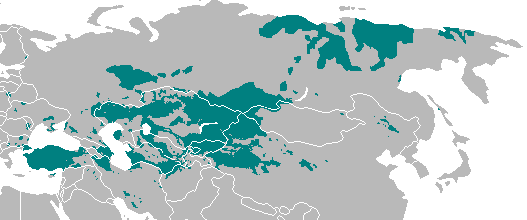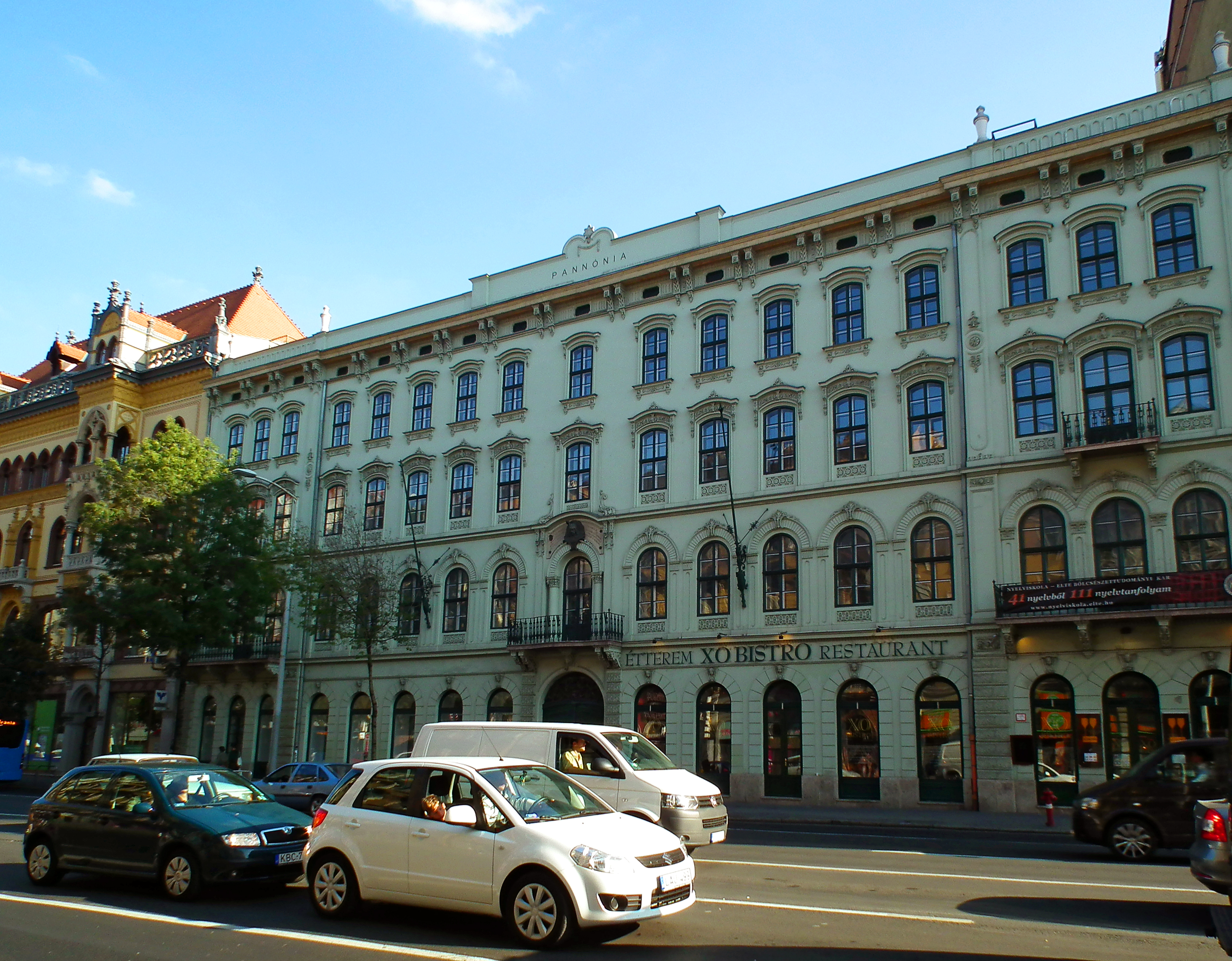|
Gyula Németh (linguist)
Gyula Németh ( hu, Németh Gyula; November 2, 1890 – December 14, 1976), commonly known in English as Julius Németh was a Hungarian linguist and turkologist and member of the Hungarian Academy of Sciences. Career He worked at the Faculty of Humanities of the Eötvös Loránd University Eötvös Loránd University ( hu, Eötvös Loránd Tudományegyetem, ELTE) is a Hungarian public research university based in Budapest. Founded in 1635, ELTE is one of the largest and most prestigious public higher education institutions in Hung .... Works * * * * * References * External links Biography at Encyclopaedia Iranica Members of the Hungarian Academy of Sciences 1890 births 1976 deaths Members of the German Academy of Sciences at Berlin Turkologists {{Hungary-scientist-stub ... [...More Info...] [...Related Items...] OR: [Wikipedia] [Google] [Baidu] |
Karcag
Karcag () is a large town in Jász-Nagykun-Szolnok county, in the Northern Great Plain region of central Hungary. Geography Karcag covers an area of and has a population of 20,632 people (2011). Transport Karcag has its own railway station, but InterCity trains do not stop here. Politics The current mayor of Karcag is László Dobos (Fidesz-KDNP). The local Municipal Assembly, elected at the 2019 local government elections, is made up of 12 members (1 Mayor, 8 Individual constituencies MEPs and 3 Compensation List MEPs) divided into this political parties and alliances: Twin towns – sister cities Karcag is twinned with: *Cristuru Secuiesc, Romania (1990) *Kunszentmiklós, Hungary (2009) *Lazdijai, Lithuania (2004) *Lednice, Czech Republic (2006) *Merki District, Kazakhstan (1998) *Moldava nad Bodvou, Slovakia (1998) *Schwarzheide, Germany (2004) * Stara Moravica (Bačka Topola), Serbia (1994) Notable people * (died in 1770), the last speaker of the Cuman langua ... [...More Info...] [...Related Items...] OR: [Wikipedia] [Google] [Baidu] |
Hungarian Academy Of Sciences
The Hungarian Academy of Sciences ( hu, Magyar Tudományos Akadémia, MTA) is the most important and prestigious learned society of Hungary. Its seat is at the bank of the Danube in Budapest, between Széchenyi rakpart and Akadémia utca. Its main responsibilities are the cultivation of science, dissemination of scientific findings, supporting research and development, and representing Hungarian science domestically and around the world. History The history of the academy began in 1825 when Count István Széchenyi offered one year's income of his estate for the purposes of a ''Learned Society'' at a district session of the Diet in Pressburg (Pozsony, present Bratislava, seat of the Hungarian Parliament at the time), and his example was followed by other delegates. Its task was specified as the development of the Hungarian language and the study and propagation of the sciences and the arts in Hungarian. It received its current name in 1845. Its central building was inaugurate ... [...More Info...] [...Related Items...] OR: [Wikipedia] [Google] [Baidu] |
Linguist
Linguistics is the scientific study of human language. It is called a scientific study because it entails a comprehensive, systematic, objective, and precise analysis of all aspects of language, particularly its nature and structure. Linguistics is concerned with both the cognitive and social aspects of language. It is considered a scientific field as well as an academic discipline; it has been classified as a social science, natural science, cognitive science,Thagard, PaulCognitive Science, The Stanford Encyclopedia of Philosophy (Fall 2008 Edition), Edward N. Zalta (ed.). or part of the humanities. Traditional areas of linguistic analysis correspond to phenomena found in human linguistic systems, such as syntax (rules governing the structure of sentences); semantics (meaning); morphology (structure of words); phonetics (speech sounds and equivalent gestures in sign languages); phonology (the abstract sound system of a particular language); and pragmatics (how social contex ... [...More Info...] [...Related Items...] OR: [Wikipedia] [Google] [Baidu] |
Turkologist
Turkology (or Turcology or Turkic studies) is a complex of humanities sciences studying languages, history, literature, folklore, culture, and ethnology of people speaking Turkic languages and Turkic peoples in chronological and comparative context. This includes ethnic groups from the Sakha in East Siberia to the Balkan Turks and the Gagauz in Moldova. History Ethnological information on Turkic tribes for the first time was systemized by the 11th-century Turkic philologist Mahmud al-Kashgari in the ''Dīwān ul-Lughat it-Turk'' (Dictionary of Turkic language). Multi-lingual dictionaries were compiled from the late 13th century for the practical application of participants in international trade and political life. One notable such dictionary is the ''Codex Cumanicus'', which contains information for Cuman, Persian, Latin, and German. There are also bilingual dictionaries for Kipchak and Armenian as well as Kipchak and Russuan. In the Middle Ages, Turkology was centred around ... [...More Info...] [...Related Items...] OR: [Wikipedia] [Google] [Baidu] |
ELTE Faculty Of Humanities
The Faculty of Humanities is the oldest faculty of Eötvös Loránd University and is located on the institution's Trefort Garden campus in Józsefváros, Budapest, Hungary. It was founded by the Cardinal Archbishop of Esztergom Prince Primate of Hungary, Péter Pázmány, in 1635. History The Faculty of Humanities of the Eötvös Loránd University was founded by Péter Pázmány, Archbishop of Esztergom, on 12 May 1635. The university was operated by the Society of Jesus and it consisted of two faculties: The Faculty of Humanities and the Faculty of Theology. Initially, there was only a three-year teaching program and students could obtain three academic titles: Bachelor's degree, Master's degree, and Doctor of Philosophy. In 1770, the Faculty of Humanities adopted the reforms introduced at the University of Vienna. The university then became state-owned and a dean and a director of the Faculty were appointed to monitor its functioning. In 1777, the Faculty of Humanities wa ... [...More Info...] [...Related Items...] OR: [Wikipedia] [Google] [Baidu] |
Eötvös Loránd University
Eötvös Loránd University ( hu, Eötvös Loránd Tudományegyetem, ELTE) is a Hungarian public research university based in Budapest. Founded in 1635, ELTE is one of the largest and most prestigious public higher education institutions in Hungary. The 28,000 students at ELTE are organized into nine faculties, and into research institutes located throughout Budapest and on the scenic banks of the Danube. ELTE is affiliated with 5 Nobel laureates, as well as winners of the Wolf Prize, Fulkerson Prize and Abel Prize, the latest of which was Abel Prize winner László Lovász in 2021. The predecessor of Eötvös Loránd University was founded in 1635 by Cardinal Péter Pázmány in Nagyszombat, Kingdom of Hungary (today Trnava, Slovakia) as a Catholic university for teaching theology and philosophy. In 1770, the university was transferred to Buda. It was named Royal University of Pest until 1873, then University of Budapest until 1921, when it was renamed Royal Hungarian Pázmá ... [...More Info...] [...Related Items...] OR: [Wikipedia] [Google] [Baidu] |
Members Of The Hungarian Academy Of Sciences
Member may refer to: * Military jury, referred to as "Members" in military jargon * Element (mathematics), an object that belongs to a mathematical set * In object-oriented programming, a member of a class ** Field (computer science), entries in a database ** Member variable, a variable that is associated with a specific object * Limb (anatomy), an appendage of the human or animal body ** Euphemism for penis * Structural component of a truss, connected by nodes * User (computing), a person making use of a computing service, especially on the Internet * Member (geology), a component of a geological formation * Member of parliament * The Members, a British punk rock band * Meronymy, a semantic relationship in linguistics * Church membership, belonging to a local Christian congregation, a Christian denomination and the universal Church * Member, a participant in a club or learned society A learned society (; also learned academy, scholarly society, or academic association) is an ... [...More Info...] [...Related Items...] OR: [Wikipedia] [Google] [Baidu] |
1890 Births
Year 189 ( CLXXXIX) was a common year starting on Wednesday (link will display the full calendar) of the Julian calendar. At the time, it was known as the Year of the Consulship of Silanus and Silanus (or, less frequently, year 942 ''Ab urbe condita''). The denomination 189 for this year has been used since the early medieval period, when the Anno Domini calendar era became the prevalent method in Europe for naming years. Events By place Roman Empire * Plague (possibly smallpox) kills as many as 2,000 people per day in Rome. Farmers are unable to harvest their crops, and food shortages bring riots in the city. China * Liu Bian succeeds Emperor Ling, as Chinese emperor of the Han Dynasty. * Dong Zhuo has Liu Bian deposed, and installs Emperor Xian as emperor. * Two thousand eunuchs in the palace are slaughtered in a violent purge in Luoyang, the capital of Han. By topic Arts and sciences * Galen publishes his ''"Treatise on the various temperaments"'' (aka ''O ... [...More Info...] [...Related Items...] OR: [Wikipedia] [Google] [Baidu] |
1976 Deaths
Events January * January 3 – The International Covenant on Economic, Social and Cultural Rights enters into force. * January 5 – The Pol Pot regime proclaims a new constitution for Democratic Kampuchea. * January 11 – The 1976 Philadelphia Flyers–Red Army game results in a 4–1 victory for the National Hockey League's Philadelphia Flyers over HC CSKA Moscow of the Soviet Union. * January 16 – The trial against jailed members of the Red Army Faction (the West German extreme-left militant Baader–Meinhof Group) begins in Stuttgart. * January 18 ** Full diplomatic relations are established between Bangladesh and Pakistan 5 years after the Bangladesh Liberation War. ** The Scottish Labour Party is formed as a breakaway from the UK-wide party. ** Super Bowl X in American football: The Pittsburgh Steelers defeat the Dallas Cowboys, 21–17, in Miami. * January 21 – First commercial Concorde flight, from London to Bahrain. * January 27 ** The United States v ... [...More Info...] [...Related Items...] OR: [Wikipedia] [Google] [Baidu] |
Members Of The German Academy Of Sciences At Berlin
Member may refer to: * Military jury, referred to as "Members" in military jargon * Element (mathematics), an object that belongs to a mathematical set * In object-oriented programming, a member of a class ** Field (computer science), entries in a database ** Member variable, a variable that is associated with a specific object * Limb (anatomy), an appendage of the human or animal body ** Euphemism for penis * Structural component of a truss, connected by nodes * User (computing), a person making use of a computing service, especially on the Internet * Member (geology), a component of a geological formation * Member of parliament * The Members, a British punk rock band * Meronymy, a semantic relationship in linguistics * Church membership, belonging to a local Christian congregation, a Christian denomination and the universal Church * Member, a participant in a club or learned society A learned society (; also learned academy, scholarly society, or academic association) is an ... [...More Info...] [...Related Items...] OR: [Wikipedia] [Google] [Baidu] |





